Senior Patrol Leader
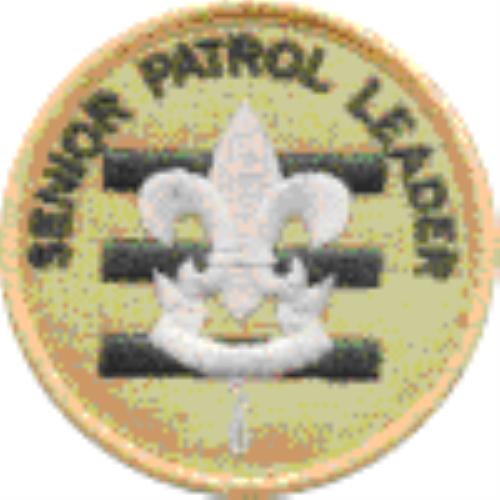
The Senior Patrol Leader is the leader of the Troop
(the Scoutmaster serves an advisory/guidance role).
Elected by the troop members
Is responsible for the Troop's overall operation.
He is in charge of Troop meetings,
heads the Patrol Leaders' Council,
and is in charge of all Troop activities.
He does everything he can to help each patrol be successful.
He is responsible for annual program planning conferences
The SPL presides over the Patrol Leaders' Council and
works closely with each Patrol Leader to plan Troop meetings and make arrangements for troop activities.
All members of a troop vote by secret ballot to choose their senior patrol leader.
Rank and age requirements to be a senior patrol leader are determined by each troop,
as is the schedule of elections (every 6 months for Troop 34).
The relationship of the senior patrol leader and the Scoutmaster should be one of mutual friendship and admiration.
The scoutmaster should work with him before and after troop meetings to mentor him, encourage him, and provide him with the tools to succeed.
You can expect to see them together again at the conclusion of the meeting, discussing how everything went and what adjustments or assignments should be made before the troop's next activity.
-----------
Assistant Senior Patrol Leader
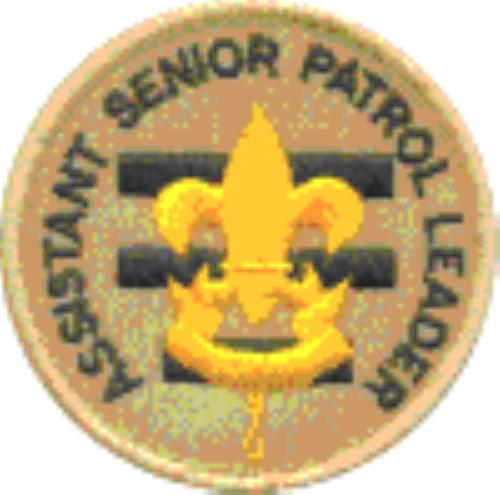
The Assistant Senior Patrol Leader:
Is appointed by the Senior Patrol Leader with the approval of the Scoutmaster.
specific duties:
are provide training and guidance for the troop's
quartermaster,
scribe,
Order of the Arrow representative,
historian,
librarian,
and instructors.
He serves in place of the senior patrol leader at meetings and events when the senior patrol leader must be absent.
Large troops may have more than one assistant senior patrol leader.
-----------
Troop Guide
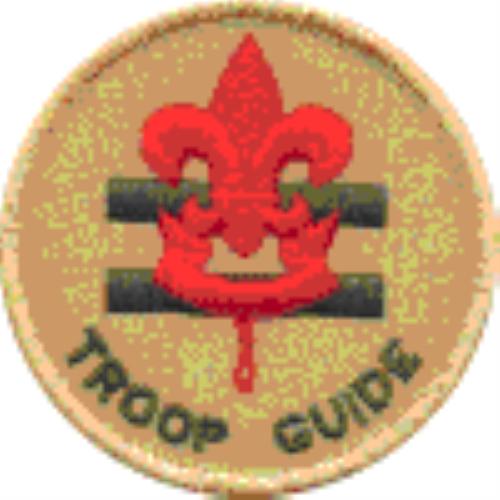
Each new-Scout patrol-in a troop should have its own troop guide.
A troop guide is an older Scout who holds the rank of First Class or higher,
has strong teaching skills,
and possesses the patience to work with new Scouts.
As a mentor to the patrol leader of the new-Scout patrol,
he provides direction for the patrol leader and helps him with his patrol leader responsibilities.
The troop guide accompanies the new-Scout patrol on troop campouts and makes himself available to assist the new Scouts as they learn fundamental Scouting skills.
Along with the patrol leader of the new-Scout patrol, he is a member of the patrol leaders' council.
-----------
Patrol Leader
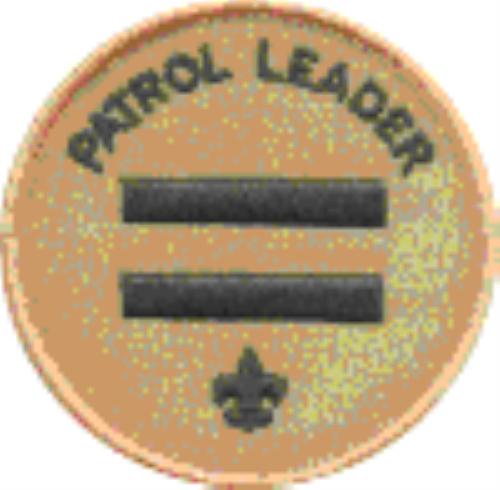
Elected by the members of the each patrol
He appoints the assistant patrol leader to work with him.
The Patrol Leader represents his Patrol at all Patrol Leaders' Council meetings;
solicits ideas and concerns from members of his Patrol
and keeps members of his Patrol informed of decisions made by the Patrol Leaders' Council.
He plays a key role in planning,
leading,
and evaluating Patrol meetings and activities.
He helps the patrol prepare to participate in all Troop activities.
He learns about the abilities of other Patrol members and fully involves them in Patrol and Troop activities by assigning them specific tasks and responsibilities.
____________________________________________________
Typical Patrol Meeting:
Patrol Leader: Calls the meeting to order
Scribe: Collects and records attendance and dues
Asst. Patrol Leader: Reports on Advancements
Patrol Leader: Reports on lastest PLC meeting & other information
Prepare, discuss, plan other activities (ie: skill)
Assistant Patrol Leader
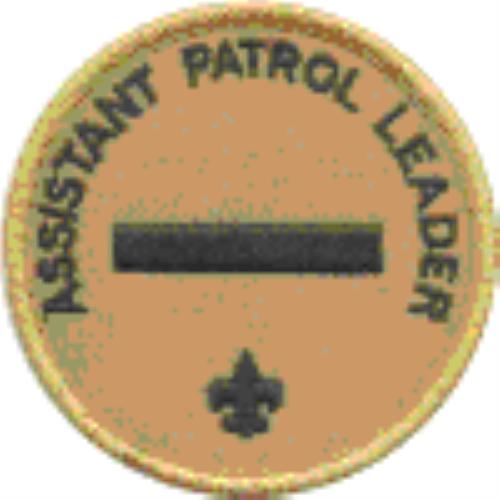
appointed by the Patrol Leader
to serve concurrently with the Patrol Leader's six month term of office.
The APL helps in leading the Patrol
and substitutes for the Patrol Leader whenever the Patrol Leader is absent.
The Assistant Patrol Leader should attend Troop Junior Leader Training and Patrol Leader's Council meeting whenever possible.
-----------
Bugler
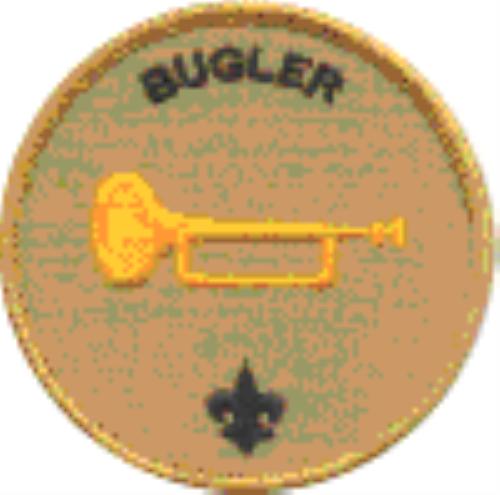
From time-to-time the Troop may have a Troop Bugler.
Chaplain Aide
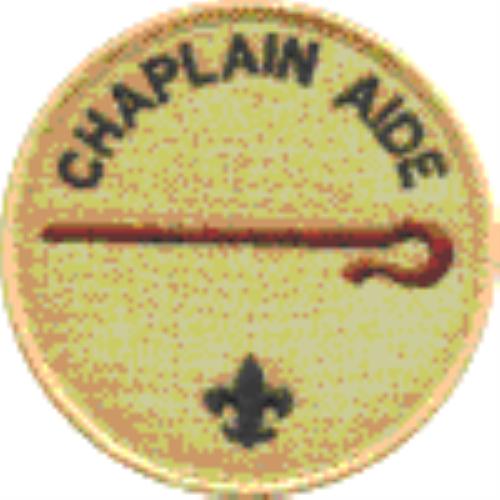
assists the Troop Chaplain (an adult from the troop committee or the chartered organization) in conducting the Troop's religious observances.
He sees that religious holidays are considered during program planning,
and he promotes the religious emblems program.
He encourages Troop members to strengthen their own relationship with God through personal prayer and devotions
and participation in religious activities.
He serves as the youth coordinator for the observance of the annual Scout Sunday each February. He is sensitive to the various theological and religious positions embraced by the faiths represented in the Troop, and acts accordingly.
-----------
Historian
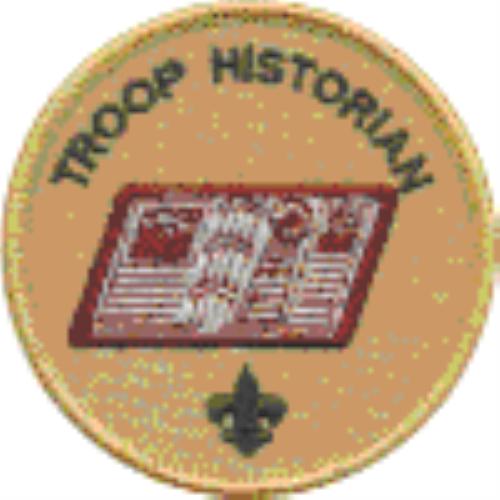
The troop historian collects
and preserves troop photographs,
news stories,
trophies,
flags,
scrapbooks,
awards,
and other memorabilia.
He may also gather and organize information about the troop's former members and leaders,
and make those materials available for Scouting activities,
media contacts,
and troop history projects.
Troop displays prepared by the historian can be used during courts of honor,
troop open houses,
and other special Scouting occasions.
-----------
Instructor
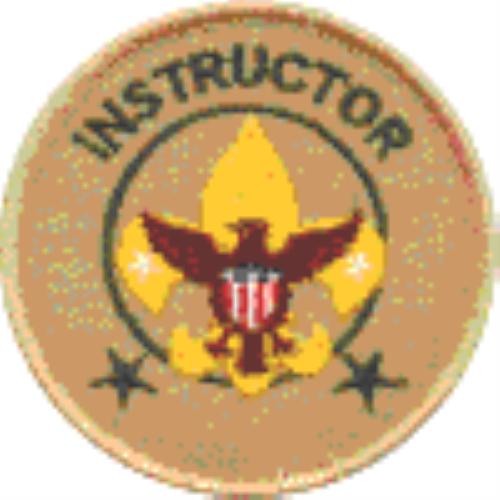
Each instructor is an older troop member who is proficient in Scouting skills
and has the ability to teach those skills to others.
The subjects that instructors may wish to teach include any of the areas that Scouts want to master,
especially those such as first aid,
camping, backpacking, orienteering,
and others required for outdoor activities and rank advancement.
A troop may have more than one instructor.
Camping Instructor
Tenderfoot Requirements #1, #2, #11
Second Class Requirements #2b, #2c, #2d, #2e, #2f
Cooking Instructor
Tenderfoot Requirement #3
Second Class Requirement #2g
First Class Requirements #4a, #4b, #4c, #4d, #4e
First Aid Instructor
Tenderfoot Requirements #12a, #12b
Second Class Requirements #6a, #6b, #6c
First Class Requirements #8b, #8c, #8d
Hiking & Orienteering Instructor
Tenderfoot Requirements #5, #9, #11
Second Class Requirements #1a, #1b, #5
First Class Requirements #1, #2, #6
Knots & Lashings Instructor
Tenderfoot Requirements #4a, #4b
First Class Requirements #7a, #7b, #7c, #8a
Swimming and Lifesaving Instructor
Tenderfoot Requirement #9
Second Class Requirements #7a, #7c
First Class Requirements #9a, #9c
-----------
Librarian
oversees the care and use of troop books,
merit badge pamphlets,
magazines,
audiovisuals,
diskettes,
and lists of merit badge counselors.
He checks out these materials to Scouts and leaders
and maintains records to ensure that all items are returned.
He may also suggest the purchase of new literature and report the need to repair or replace any current items.
-----------
Order of the Arrow Representative
OA Troop Representative Duties:
- Serves as a communication link between the lodge or chapter and the troop.
- Encourages year round and resident camping in the troop.
- Encourages older Scout participation in high adventure programs.
- Encourages Scouts to actively participate in community service projects.
- Assists with leadership skills training in the troop.
- Encourages Arrowmen to assume leadership positions in the troop.
- Encourages Arrowmen in the troop to be active participants in the lodge and/or chapter activities and to seal their membership in the Order by becoming Brotherhood members.
- Sets a good example
- Enthusiastically wears the Scout uniform correctly.
- Lives by the Scout Oath, Scout Law and OA Obligation
- Shows Scout spirit
OA Troop Representative Qualifications:
- Under 18 years old
- Appointed by SPL with SM approval
- OA Member in good standing
OA Troop Representative Reports To:
Assistant Senior Patrol Leader
Quartermaster
The Troop Quartermaster is the Troop's supply boss.
He keeps a Current inventory of Troop equipment
and sees that the gear is in good condition.
Records when and by whom equipment is checked out and returned.
Reports on the status of equipment in need, of replacement and repair
At the Patrol Leader's Council Meetings.
In carrying out his responsibilities he may have the guidance of the Troop Committee's Equipment Chair.
Scribe
The scribe is the Troop's secretary.
He keeps the minutes or a “log book” of the patrol leaders' council meetings and discussions.
but is not a voting member of the council.
The scribe may also keep attendance records
of other troop activities,
such as campouts
and service projects.
During troop meetings,
he records attendance
and payment of dues,
and maintains troop advancement records.
The scribe may also be responsible for maintaining a troop Web site with information that is current and correct.
An adult who is a member of the troop committee may be assigned to help the troop scribe carry out his responsibilities.
Troop Meetings
The troop meeting may provide a good opportunity for those wanting to hold a troop position to make a short presentation to the troop.
They would explain their qualifications and reasons for seeking the office.
This provides good practice for the candidates and enables those who do not know them well, younger Scouts in particular, to gain a better sense of what they propose to do for the troop.
Patrol Scribe
Is the patrol’s secretary
Takes attendance
Keeps the patrol log book or minutes
Collects and records patrol dues
Helps prepare budgets for outings
Patrol Quartermaster
Maintains inventory of patrol’s equiptment
Makes sure it is clean and ready for use.
Patrol Grubmaster
Assist patrol in putting together menus for hikes and campouts
Takes the lead in making food-related arrangements for the patrol’s outdoor programs
Patrol Cheermaster
Leads patrol in songs, yells, and stunts during meetings and evening campout programs